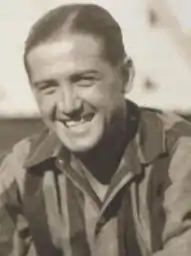 | ||||||||||||||||||||||||||||||||
| Personal information | ||||||||||||||||||||||||||||||||
|---|---|---|---|---|---|---|---|---|---|---|---|---|---|---|---|---|---|---|---|---|---|---|---|---|---|---|---|---|---|---|---|---|
| Full name | Juan Peregrino Anselmo | |||||||||||||||||||||||||||||||
| Date of birth | 30 April 1902 | |||||||||||||||||||||||||||||||
| Place of birth | Montevideo, Uruguay | |||||||||||||||||||||||||||||||
| Date of death | 27 October 1975 (aged 73) | |||||||||||||||||||||||||||||||
| Position(s) | Striker | |||||||||||||||||||||||||||||||
| Senior career* | ||||||||||||||||||||||||||||||||
| Years | Team | Apps | (Gls) | |||||||||||||||||||||||||||||
| 1922–1935 | Peñarol | 180 | (102) | |||||||||||||||||||||||||||||
| International career | ||||||||||||||||||||||||||||||||
| 1927–1935 | Uruguay | 8 | (3) | |||||||||||||||||||||||||||||
| Managerial career | ||||||||||||||||||||||||||||||||
| 1962 | Peñarol | |||||||||||||||||||||||||||||||
Medal record
| ||||||||||||||||||||||||||||||||
| *Club domestic league appearances and goals | ||||||||||||||||||||||||||||||||
Juan Peregrino Anselmo (30 April 1902 – 27 October 1975) was a Uruguayan footballer who played as a striker for Uruguay national team. He was a member of national team which won 1930 FIFA World Cup. He scored three goals in the tournament, including two in the semi-finals.[1] He was the first false 9 in a World Cup. He was part of the squad which won gold medal at the 1928 Summer Olympics, but did not play in any games.[2] He was a player[3] and later coach of C.A. Peñarol. As coach, succeeding mid-1962 the Hungarian Béla Guttmann in office, he led the club to the Uruguayan championship of the same year. In the later part of 1963 the Uruguayan goalkeeper Roque Maspoli succeeded him.
International goals
- Scores and results list Uruguay's goal tally first, score column indicates score after each Anselmo goal.
| # | Date | Venue | Opponent | Score | Result | Competition |
|---|---|---|---|---|---|---|
| 1. | 21 July 1930 | Estadio Centenario, Montevideo, Uruguay | 3–0 | 4–0 | 1930 FIFA World Cup | |
| 2. | 27 July 1930 | Estadio Centenario, Montevideo, Uruguay | 2–1 | 6–1 | 1930 FIFA World Cup | |
| 3. | 3–1 |
Honours
Peñarol
Uruguay
References
- ↑ Davison, Dan (24 November 2017). "How Uruguay lifted the 1930 World Cup". These Football Times. Retrieved 10 October 2020.
- ↑ "Peregrino Anselmo". Olympedia. Retrieved 11 September 2021.
- ↑ "Juan Peregrin Anselmo | Idolos 1891-1929". Archived from the original on 2 December 2009. Retrieved 14 March 2010.
This article is issued from Wikipedia. The text is licensed under Creative Commons - Attribution - Sharealike. Additional terms may apply for the media files.